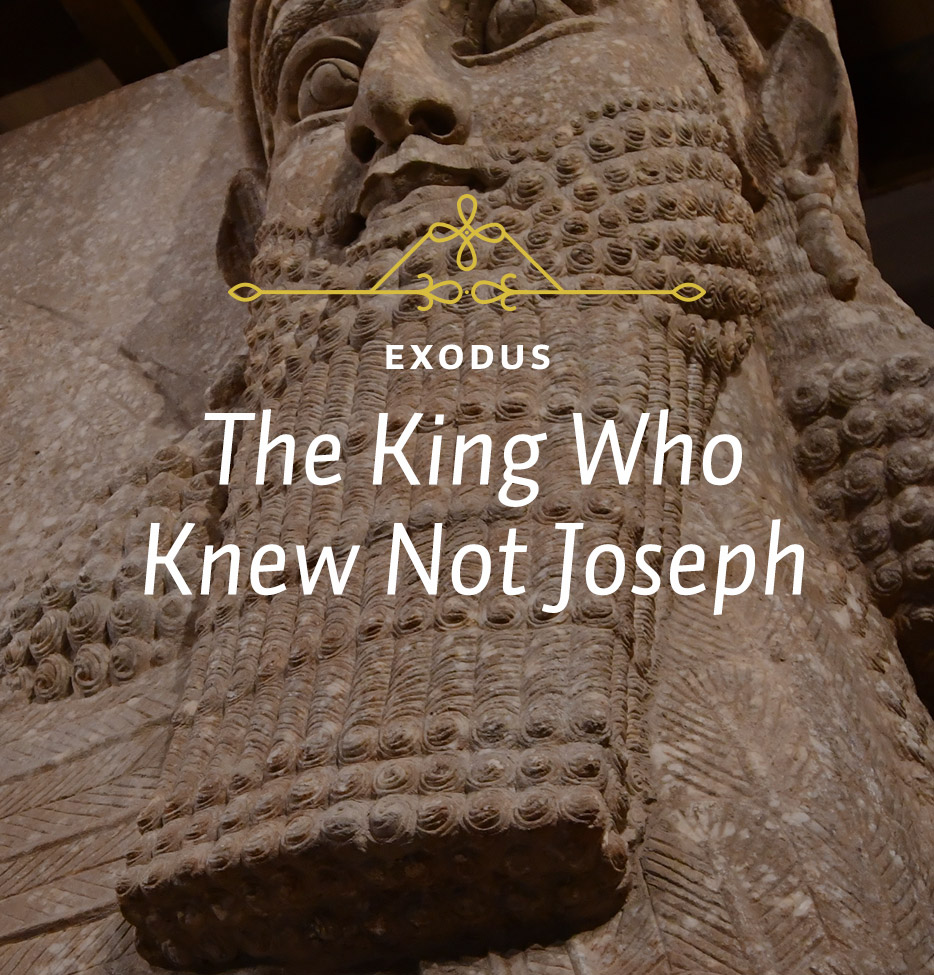This story also teaches us that even in times of great sophistication and power, a nation can be cruel. What we read about in the first chapter is the way pharaoh began to oppress the people, and we find two stages in it. First of all, you see slave labor. Now, there wasn’t anything unusual about that. In the ancient world; there were always slaves. People have estimated that at any given time in the ancient world, about half of the people were enslaved to the other half. Even the Egyptians themselves operated under forced labor groups at times. But what’s different about this in Exodus 1 is that it involved a whole people, that is, it was ethnic. It wasn’t just a convenient way of getting something built, it was directed against the Jews as Jews, and it involved all the people.
Furthermore, it was motivated by fear. Moses quotes the pharaoh as saying, “If the people multiply and become numerous, then, if war breaks out it might very well be that they will join our enemies and fight against us.” Now you can understand that fear. It wasn’t quite noble, however. The reason I say that is that when Pharaoh says they might fight against us, he also adds, “Yes, and they might also leave the country.” And the reason that mattered, of course, is that he needed them as slaves to build his storage cities. That is why he oppressed them and made their lives miserable. They toiled in the hot sun and he used them ruthlessly, hoping to kill them off, or at least a lot of them. But instead of more Israelites dying, we’re told they multiplied.
Now, when that plan failed, pharaoh tried something else to do away with them. This idea was outright genocide: He instructed the midwives to kill the male babies. They were not to kill the female babies; presumably they would become slave wives of the Egyptians, and what would happen is the people would eventually vanish as a separate ethnic group within a generation. But it didn’t work. We’re told that the Hebrew midwives wouldn’t do it. They disobeyed the pharaoh. And when he called them to account, they gave an explanation which was not true. The midwives replied, “Well, you know, the Hebrew women are very active and their babies come quickly. By the time we get there, well, the babies are already born. We were not able to do away with them during the birth.” Then the pharaoh said “Well, just kill them outright. All of the male babies need to be killed or thrown into the Nile.”
I think when we reflect on that, we have to realize that this is the first occasion in all of history of anti-Semitism, that is, hatred against the Jews. It had to do with this rapid multiplication of the people in numbers, and that was really remarkable. Some people have said that the growth numerically of the Jewish people borders on the miraculous. It certainly seems to have been so during this period, when the evil plans against the Jews were thwarted by the Lord. They increased from seventy people to two million within four centuries. That’s a remarkable growth.
But this growth happened throughout history. In 1836 there was a world census taken that said at that time there were about three million Jews living in many different countries. Now the one hundred years that followed was a time of great persecution of the Jewish people, particularly in Russia. And yet in 1936, when another world census was done, in spite of that persecution, the original three million Jewish people had increased to sixteen million. And we know the history after that, when under Nazi persecution six million Jews were killed. Yet at the end of the Nazi period there were more Jews in the world than there were beforehand.
I think that these numbers have to do with God’s promise to Abraham, where He said in Genesis 22:17 that He was going to greatly multiply Abraham’s descendants so they will become as numerous as the stars in heaven and the sand on the seashore.






